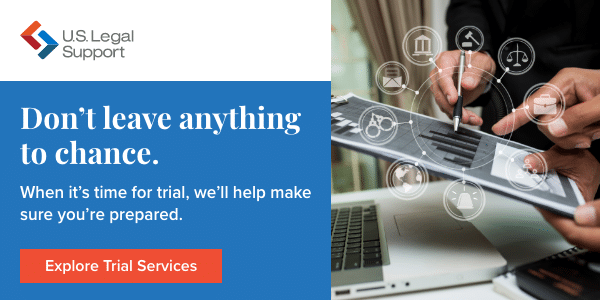Upholding Ethics and Professionalism in Process Serving

Anyone who has encountered process serving in movies or television likely thinks of it as full of elaborate disguises and shady escapades leading up to the “you’ve been served” line. In reality, that’s not how it usually works.
Process servers are trained—and, in some jurisdictions, licensed—professionals who must follow ethical and legal guidelines to get the job done. Law firms need to understand these standards and ensure they’re represented by compliant, trustworthy servers.
Why Ethics and Professionalism Matter in Process Serving
Process service is a frequent need for attorneys and law firms, and one that’s often outsourced. Ensuring your process servers follow ethical standards and professional best practices is important due to:
- Reputation – They’ll be perceived to be acting as an extension of your firm, meaning their performance, behavior, and demeanor will reflect on you.
- Case interference – Improper process serving can be used against you in court, leading to a finding against your client or costly delays.
- Damages – A process server who violates the law in pursuit of a delivery or lies about aspects of a document delivery (or about having served it at all) can leave the law firm they represented open to litigation.
Core Ethical Standards Every Process Server Should Follow
Several points in the National Association of Professional Process Servers (NAPPS) Code of Ethics refer to acting in a “lawful, professional, and ethical manner” without explicitly defining what that means.1
Process servers must follow jurisdictional guidelines carefully, as privacy and other regulations can differ (including whether servers must be licensed by the state). Beyond complying with laws and best practices, acting ethically requires upholding several core tenets.
#1 Truthfulness and Transparency
Process servers must act with honesty and forthrightness. This includes:
- Providing full and accurate updates and information to clients
- Not impersonating others or lying about their identity
- Being truthful about their reason for visiting a target of process service
Note that impersonation goes beyond an active lie—donning a disguise or costume element that suggests the role of a police officer or government official (including any type of mail carrier) is not permissable.
#2 Respect for Privacy and Confidentiality
While delivery may take place in public, process servers should minimize broadcasting their task beyond those who need the information. Dramatic deliveries can draw attention that unnecessarily paints the target in a bad light to employers, family members, or others. Carrying out the task with the highest level of discretion available is the ethical goal.
There are, however, times when subtlety must make way for action that is more forthright while still permissible under jurisdictional guidelines. If a summons delivery in New York state, for example, has been attempted several times with no success, the server is advised to post a copy on the target’s workplace door or home in addition to sending it by mail.2
#3 Avoiding Conflict of Interest
There should be no familial, personal, business, or other relationship between a process server and their target. Beyond actual conflict of interest, servers should avoid the appearance of impropriety and make any conflicts known when they’re presented with an assignment.
Professional Conduct in the Field
While completing a delivery assignment, process servers must act with care, as an extension of the client and as a representative of the process server profession. This includes:
- Carrying and offering proper identification
- Acting with respect, attention, and calmness
- Providing timely updates to clients
- Keeping accurate records
How to Vet a Process Serving Partner for Ethics
You can manage your firm’s risk by outsourcing to a process serving partner, but how do you guarantee they’ve instilled ethics into their work practices, employees, and contractors? Start with these questions about their commitment to ethical practices:
- Do you provide or require ethics training for your process serving employees?
- How do you vet independent contractors for ethical adherence?
- Does company policy encourage reporting concerns and protect whistleblowers?
Ask about their familiarity with the publicly available NAPPS Policy Manual, which contains Process Serving Standards and Best Practices as well as the Code of Ethics.3 Do they utilize this or another professionally recognized code of ethics?
Keeping Cases on Track Through Ethical Service
Process serving is integral to litigation, allowing lawyers to locate and properly deliver vital subpoenas, summonses, court orders, and other documents to their intended recipients. However, it can be challenging to avoid trespassing against either a jurisdiction’s unique regulations or professional standards when targets are seeking to avoid being served.
Working with a trusted partner can help you get the results you need while ensuring ethical practices. Skilled process servers understand how to appropriately locate and serve targets by leveraging process server technology, experience, and on-the-ground familiarity.
U.S. Legal Support has served the legal industry for nearly 30 years, blending a deep network of nationwide professionals with leading technology and industry best practices. We provide fast, easy-to-order process serving and associated surveillance and skip tracing services.
Plus, our expansive litigation support offerings include court reporting, realtime transcription, interpreting, medical records retrieval, trial and jury consulting, and a full range of trial support services.
Contact us today by phone, email, or website request form to discuss how we can help with your process serving and other litigation support needs.
Sources:
- National Association of Professional Process Servers. NAPPS Code of Ethics. https://napps.org/Members_code.aspx
- Office of the New York State Attorney General. Process servers: Know your rights. https://ag.ny.gov/resources/individuals/credit-debt-lending/debt-settlement#process
- National Association of Professional Process Servers. NAPPS Standards, Best Practices and The Policy Manual. https://napps.org/Best_practices.aspx

Editoral Policy
Content published on the U.S. Legal Support blog is reviewed by professionals in the legal and litigation support services field to help ensure accurate information. The information provided in this blog is for informational purposes only and should not be construed as legal advice for attorneys or clients.


